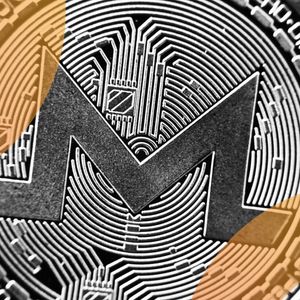Unshackled Bitcoin: Is Crypto Finally Decoupling From US Stocks?
4 min read
For years, the narrative in the financial world has been clear: Bitcoin moves with the stock market, especially tech stocks. But is this relationship starting to fray? Recent reports, like one from CoinDesk, suggest that the seemingly unbreakable Bitcoin correlation with the U.S. stock market might be showing signs of weakening. Could this be a pivotal moment for crypto, signaling a new era of independence? Is Bitcoin Decoupling from Traditional Markets? On April 16th, a curious divergence caught the attention of market watchers. As the tech-heavy Nasdaq 100 index took a significant tumble, dropping as much as 4.5%, BlackRock’s spot Bitcoin ETF (IBIT) swam against the tide, actually gaining 0.46%. This counter-movement is noteworthy. While both asset classes experienced a dip following U.S. Federal Reserve Chair Jerome Powell’s remarks, the reactions differed significantly. Bitcoin demonstrated resilience, swiftly rebounding to $84,000, while the Nasdaq 100 continued its downward trajectory before staging a later recovery. This episode raises a crucial question: Are we witnessing the start of a genuine Bitcoin decoupling from traditional equities? What Factors Could Be Driving This Potential Decoupling? Several factors could be contributing to this shift in the crypto stock correlation . Let’s explore a few key possibilities: Maturing Market Dynamics: Bitcoin, once seen as a purely speculative asset, is gradually maturing. Institutional adoption is on the rise, with entities like BlackRock offering Bitcoin ETFs, indicating a deeper integration into mainstream finance. This maturity could lead to Bitcoin being viewed and traded based on its own fundamentals rather than solely mirroring tech stock sentiment. Unique Macroeconomic Drivers: Cryptocurrencies, and Bitcoin in particular, are often touted as a hedge against inflation and currency devaluation. In times of economic uncertainty or when traditional markets face specific pressures (like interest rate hikes impacting tech stocks), Bitcoin might react differently, driven by its perceived safe-haven status or unique supply dynamics. Increased Investor Differentiation: As the crypto market evolves, investors are becoming more sophisticated. They are starting to differentiate between crypto assets and traditional stocks, making investment decisions based on asset-specific analyses rather than broad market correlations. This increased discernment can naturally lead to a weakening of previously observed correlations. Global Liquidity Flows: Bitcoin trades globally, 24/7. Its price can be influenced by liquidity events and market sentiment from various regions, not just the U.S. stock market. This global nature inherently reduces its dependence on the performance of a single stock market index. Bitcoin vs Stocks: A Comparative Glance To understand the potential divergence better, let’s consider a simplified comparison: Feature Bitcoin US Stocks (Nasdaq 100) Asset Class Cryptocurrency, Digital Asset Equity, Traditional Asset Trading Hours 24/7, Global Markets Standard Market Hours, Primarily US Key Drivers Supply Scarcity, Decentralization, Inflation Hedge Narrative, Global Adoption Corporate Earnings, Economic Indicators, Interest Rates, Geopolitical Events Regulatory Landscape Evolving, Varied Globally Established, Primarily National Investor Base Diverse, Retail and Institutional, Global Primarily Institutional and Retail, Concentrated in Developed Economies This table highlights the fundamental differences that could explain why the historical Bitcoin vs stocks correlation might be shifting. Bitcoin operates in a distinct ecosystem with its own set of drivers and investor base. Navigating the Shifting Sands: Actionable Insights If the Bitcoin market analysis indicates a genuine decoupling, what does this mean for investors and the broader crypto space? Portfolio Diversification: A weaker correlation strengthens the argument for Bitcoin as a diversification tool within investment portfolios. If Bitcoin behaves independently of stocks, it can offer a hedge during stock market downturns and potentially enhance risk-adjusted returns. Independent Market Analysis: Investors should increasingly analyze Bitcoin based on its own merit and market dynamics, rather than relying solely on stock market cues. Understanding Bitcoin-specific metrics, on-chain data, and adoption trends becomes even more crucial. Risk Management Adjustments: As correlations shift, risk management strategies need to adapt. Historical correlation-based models might become less reliable, necessitating a more nuanced approach to portfolio construction and risk assessment in the crypto space. Opportunity for Growth: For the crypto industry, decoupling could signify a move towards greater legitimacy and acceptance as a distinct asset class. It could attract a new wave of investors seeking assets with low correlation to traditional markets. The Road Ahead: Is Decoupling a Confirmed Trend? While the events of April 16th and recent analyses are intriguing, it’s crucial to remember that correlation is not causation, and short-term divergences can occur even within long-term correlated trends. It’s too early to definitively declare a complete and permanent decoupling. However, the signs are promising . Continued monitoring of the crypto stock correlation , along with deeper analysis of the underlying market drivers, will be essential to confirm if this is indeed a sustained shift or just a temporary deviation. The potential weakening of the Bitcoin-stock market correlation is a significant development. It suggests a possible maturation of the cryptocurrency market and could reshape investment strategies and portfolio construction in the years to come. As Bitcoin potentially carves out its own independent path, the world of finance watches with keen interest, eager to see if this nascent decoupling blossoms into a full-fledged divergence. To learn more about the latest crypto market trends, explore our article on key developments shaping Bitcoin price action.

Source: Bitcoin World



